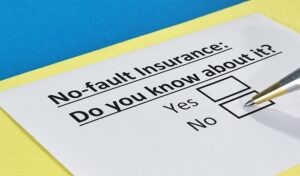
Will My Insurance Premium Go Up Even if I’m Not at Fault?
A previous car crash can impact your automobile insurance premium, so it is important to know whether your rates will go up after a no-fault accident. Auto accidents stir up

A previous car crash can impact your automobile insurance premium, so it is important to know whether your rates will go up after a no-fault accident. Auto accidents stir up

If you’ve just been in an accident in the state of Utah, you might be wondering if Utah is a no-fault state. Since there are only a dozen or so states with the no-fault law, you’ll likely want to brush up on what states use the no-fault insurance system and how it applies to Utah.
UTAH INJURY LAWYERS
Flickinger • Boulton
• Robson • Weeks
PROVO OFFICE
3000 N University Ave
Suite 300
Provo, UT 84604
SOUTH JORDAN OFFICE
10393 S. Temple Dr.
Suite 103
South Jordan, Utah 84095
OFFICE HOURS
Monday- Friday: 8AM-5PM
Saturday-Sunday: Closed
*Disclaimer: the information provided by this website is for informational purposes only and should not be considered legal advice or a substitute for competent legal counsel.
**SMS consent and contact phone numbers will not be shared or sold to third parties or their affiliates for any purpose.
© 2025 All Rights Reserved.